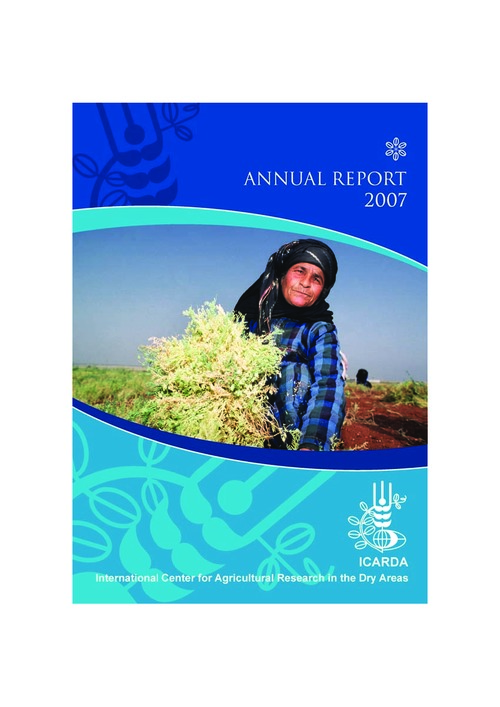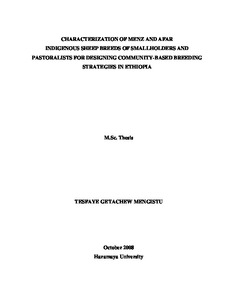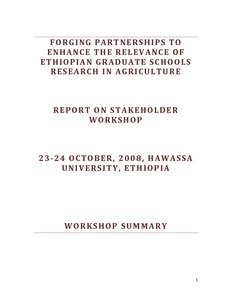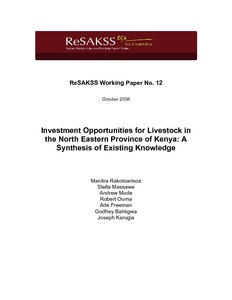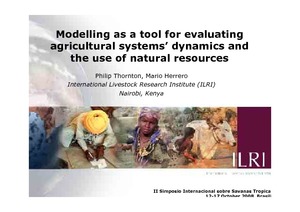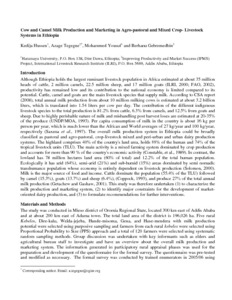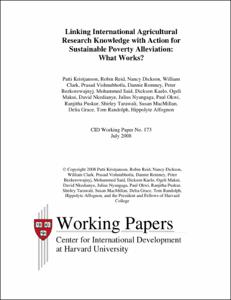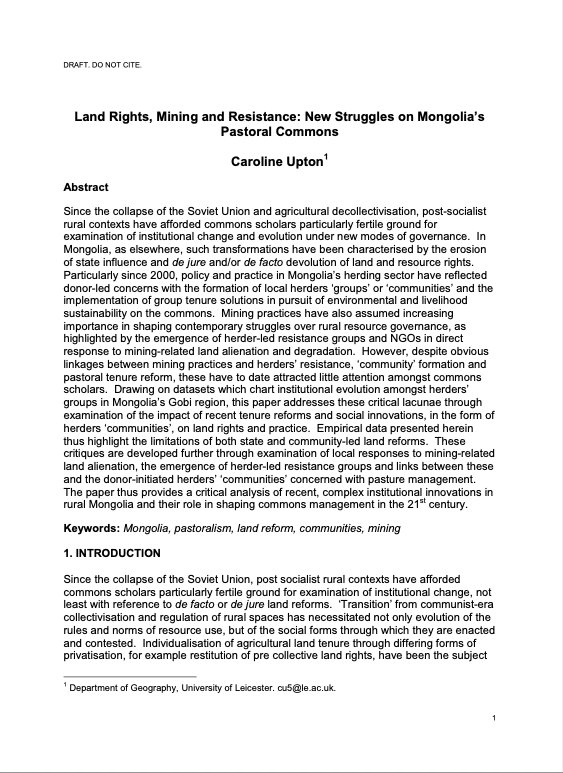Counting in a disappearing land: people, livestock and wildlife
ICARDA Annual Report 2007
In 2007, ICARDA celebrated its thirtieth anniversary. The Center and its partners have worked together for three decades to improve the food security and livelihoods of the poor in dry and marginal areas. During this time, we have seen significant changes in the biophysical environment and in socio-economic circumstances.
Characterization of Menz and Afar indigenous sheep breeds of smallholders and pastoralists for designing community-based breeding strategies in Ethiopia
This study aimed at understanding of existing sheep breeding practices, identifying sheep breeding goals and characterizing the morphological and biometrical characters of Menz and Afar sheep breeds in their habitat as a step towards developing sustainable sheep breeding strategy.
Forging partnership to enhance the relevance of Ethiopian graduate schools research in agriculture: Report on stakeholder workshop, Hawassa University, Ethiopia, 23-24 October 2008
Investment Opportunities for Livestock in the North Eastern Province of Kenya: A Synthesis of Existing Knowledge
Pastoralism is the dominant livelihood activity in the North Eastern Province (NEP) of Kenya. It is supplemented only by a limited amount of agriculture along the rivers.
Modelling as a tool for evaluating agricultural systems' dynamics and the use of natural resources
Cow and camel milk production and marketing in agro-pastoral and mixed crop-livestock systems in Ethiopia
Programa de Acción Nacional contra la Desertificación 2008.
El objetivo fundamental del Programa de Acción Nacional contra la Desertificación (PAND) es contribuir al logro del desarrollo sostenible de las zonas áridas, semiáridas y subhúmedas secas del territorio nacional y, en particular, la prevención o la reducción de la degradación de las tierras, la rehabilitación de tierras parcialmente degradadas y la recuperación de tierras desertificadas.
The Transformation of the Afar Commons in Ethiopia: State Coercion, Diversification, and Property Rights Change among Pastoralists
The major economic activity for pastoralists is animal husbandry. The harshenvironment in which herders raise their livestock requires constant mobility toregulate resource utilization via a common property regime.
Land Rights, Mining and Resistance: New Struggles on Mongolia’s Pastoral Commons
Since the collapse of the Soviet Union and agricultural decollectivisation, post-socialist rural contexts have afforded commons scholars particularly fertile ground for examination of institutional change and evolution under new modes of governance.



